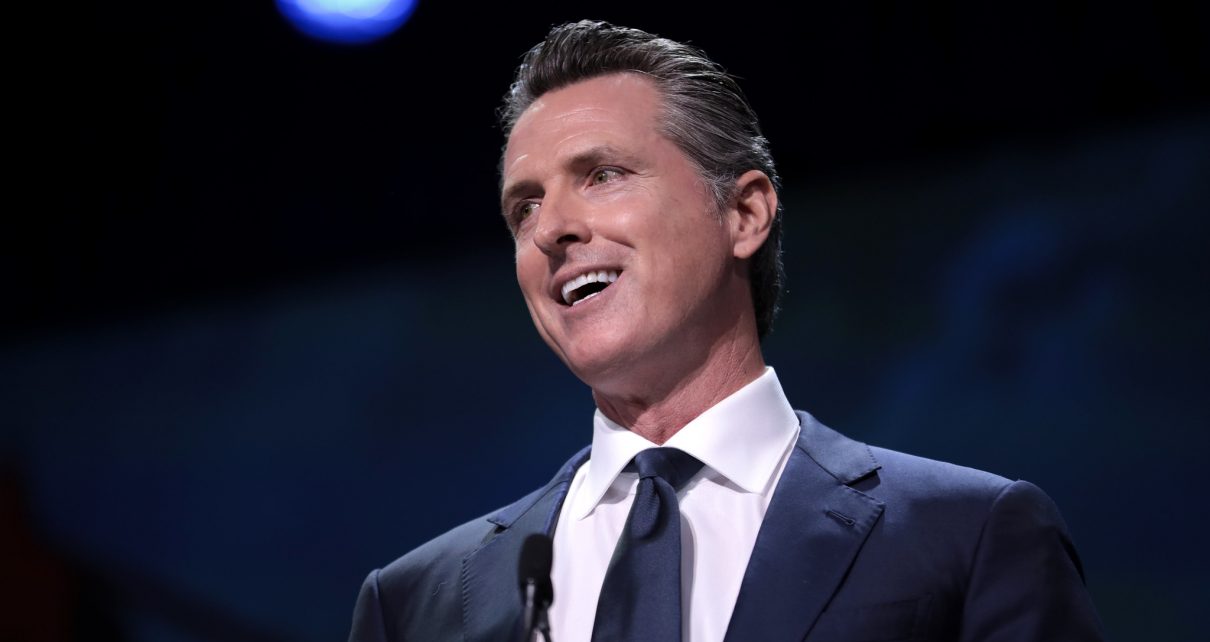
Governor Gavin Newsom at 2019 California Democratic Party State Convention at the George R. Moscone Convention Center in San Francisco, June 1, 2019. (Photo: Gage Skidmore)
Newsom Signs Three ‘Deepfake’ Election Ad Bills Into Law
‘These measures will help to combat the harmful use of deepfakes in political ads and other content, one of several areas in which the state is being proactive to foster transparent and trustworthy AI’
By Evan Symon, September 17, 2024 6:57 pm
Governor Gavin Newsom signed 3 bills into law on Tuesday, putting severe limitations on the use of “deepfakes” and other digitally generated or altered content in election campaigns.
The first bill, Assembly Bill 2655, authored by Assemblyman Marc Berman (D-Menlo Park), would would require a large online platform to block the posting of materially deceptive content related to elections in California, during specified periods before and after an election. The bill, also known as the Defending Democracy from Deepfake Deception Act of 2024, would require a large online platform to label certain additional content inauthentic, fake, or false during specified periods before and after an election in California. A reporting process, as well as a litigation system, would also be put into place.
The next, Assembly Bill 2839, authored by Assemblywoman Gail Pellerin (D-Santa Cruz), would prohibit a person, committee, or other entity from knowingly distributing an advertisement or other election communication, that contains certain materially deceptive content with malice, subject to specified exemptions. The bill would apply this prohibition within 120 days of an election in California and 60 days after an election. AB 2839 would also authorize a recipient of materially deceptive content distributed in violation of this section, candidate or committee participating in the election, or elections official to file a civil action to enjoin the distribution of the media and to seek damages against the person, committee, or other entity that distributed it.
Finally, Assembly Bill 2355, authored by Assemblywoman Wendy Carrillo (D-Los Angeles), would require a committee that creates, originally publishes, or originally distributes a qualified political advertisement to include in the advertisement a specified disclosure that the advertisement was generated or substantially altered using artificial intelligence. AB 2355 would prescribe formatting requirements for this disclosure depending on the medium of the qualified political advertisement. The bill also would specify that any image, audio, video, or other media is generated or substantially altered using artificial intelligence if it is entirely created using artificial intelligence and would falsely appear to a reasonable person to be authentic or materially altered by artificial intelligence such that a reasonable person would have a fundamentally different understanding of the altered media when comparing it to an unaltered version.
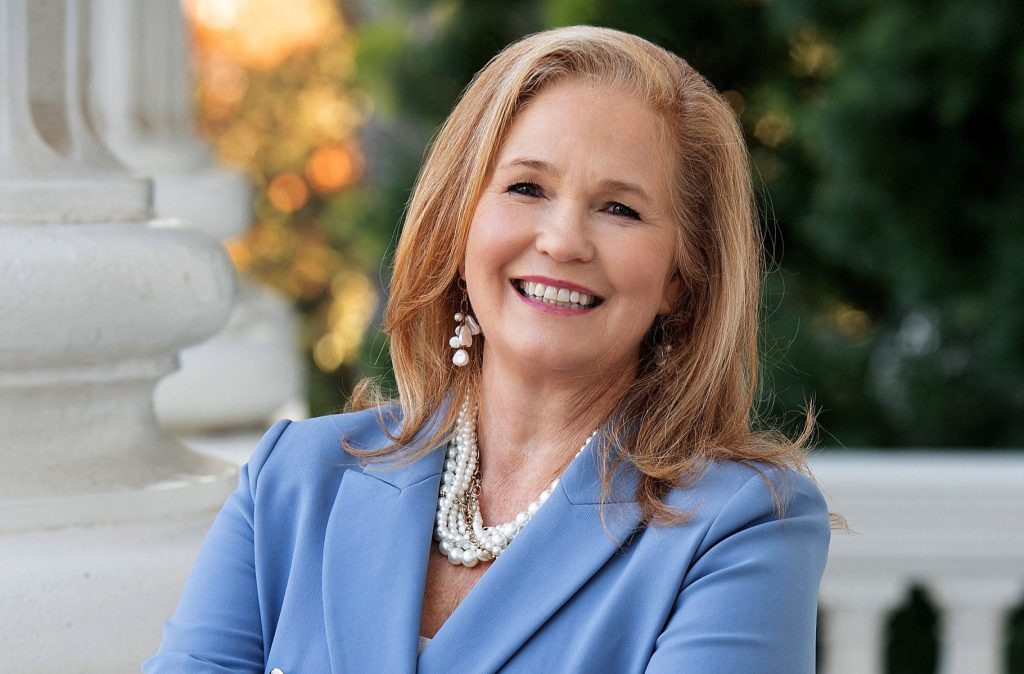
All three Democrat authors aimed for their respective bills to remove the use of deepfakes and other digitally altered content in election campaigns, as well as set up legal punishments for violations. They also said that they wrote them to help preserve the democratic process.
Assemblywoman Pellerin noted that “Signing AB 2839 into law is a significant step in continuing to protect the integrity of our democratic process. With fewer than 50 days until the general election, there is an urgent need to protect against misleading, digitally-altered content that can interfere with the election. With the enactment of AB 2839, California is taking a stand against the manipulative use of deepfake technology to deceive voters.”
While AB 2355 passed almost unanimously through the legislature, both AB 2839 and AB 2655 received significant opposition from both Republicans and some Democrats. Lawmakers questioned just how accurate some large online platform would be in blocking deepfakes, as well as criticizing the reporting process, with some claiming that it could be used as a political tool to temporarily block ads in the future while they are investigated for alterations. Similarly, many also questioned how closely “knowingly distributing” would be adhered to, as there is room for interpretation in the law. As such, Assembly votes on the bills didn’t even break the 60 member in support mark at some points, with many also not voting in protest.
Nonetheless, all three passed the Assembly and Senate by the end of August, moving them all up to the Governor for his decision. This led to Newsom’s decision on Tuesday, with him giving similar points to the original authors of the 3 bills.
California is standing up to harmful deepfakes in political ads and other online content.
To help safeguard the integrity of our elections, these three new laws will remove deceptive content from large online platforms, increase accountability, and better inform voters. pic.twitter.com/6wUzHpOSGV
— California Governor (@CAgovernor) September 17, 2024
“Safeguarding the integrity of elections is essential to democracy, and it’s critical that we ensure AI is not deployed to undermine the public’s trust through disinformation – especially in today’s fraught political climate,”Newsom said Tuesday. “These measures will help to combat the harmful use of deepfakes in political ads and other content, one of several areas in which the state is being proactive to foster transparent and trustworthy AI.”
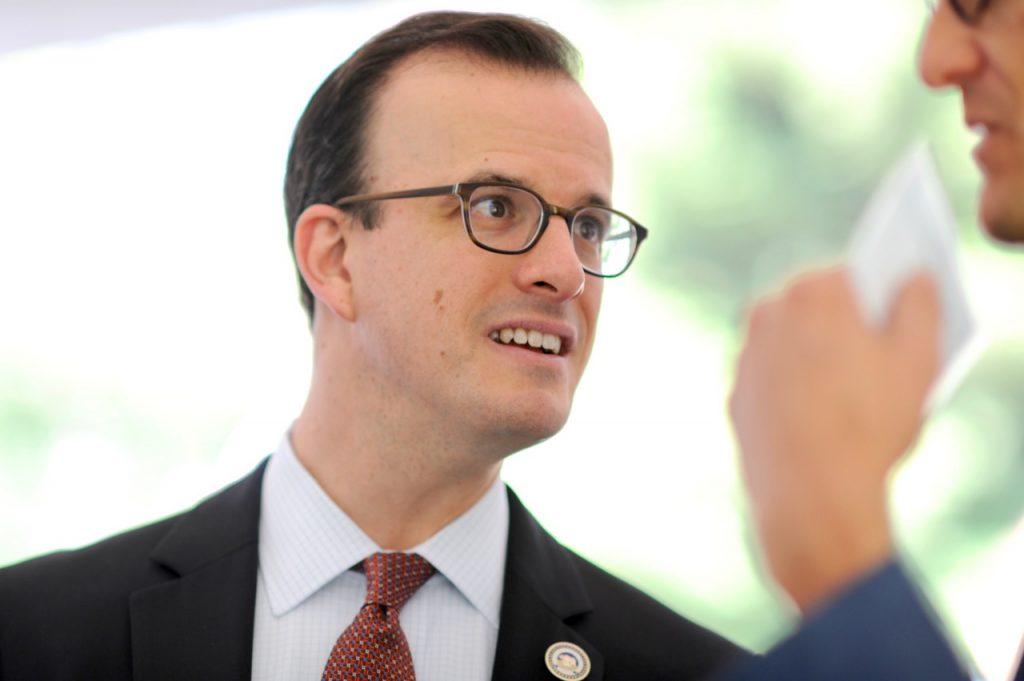
Assemblyman Berman added that “AI-generated deepfakes pose a clear and present risk to our elections and our democracy. AB 2655 is a first-in-the-nation solution to this growing threat, and I am grateful to Governor Newsom for signing it. Advances in AI over the last few years make it easy to generate hyper-realistic yet completely fake election-related deepfakes, but AB 2655 will ensure that online platforms minimize their impact. The new law is a win for California’s voters, and for our democracy.”
However, the many open questions on the limits of the now-laws led to many hoping for clarifications and exact definitions of the limits, especially with the growing usage of AI and the growing number of political ads.
“These laws were needed but they needed to be a lot more clear on things,” added tech lawyer Sam Reichman to the Globe on Tuesday. “The halting of ads that aren’t AI generated and other side effects of these bills are going to play out in court. Safe to say, this isn’t the last you have heard of these bills. More care in the language of them was really needed.”
In addition to the three AI ad bills signed on Tuesday, Newsom also signed into laws bills limiting AI usage of performers in films.
- Bill to Require Law Enforcement Disclosure if AI Was Used To Help Write Reports - August 7, 2025
- Gov. Newsom Files FOIA Request To ‘Expose True Cost’ Of L.A. Federal Troop Deployment for Anti-ICE Riots - August 6, 2025
- California Redistricting: How Newsom’s Plan Will Demolish Hard Fought GOP Gains - August 6, 2025


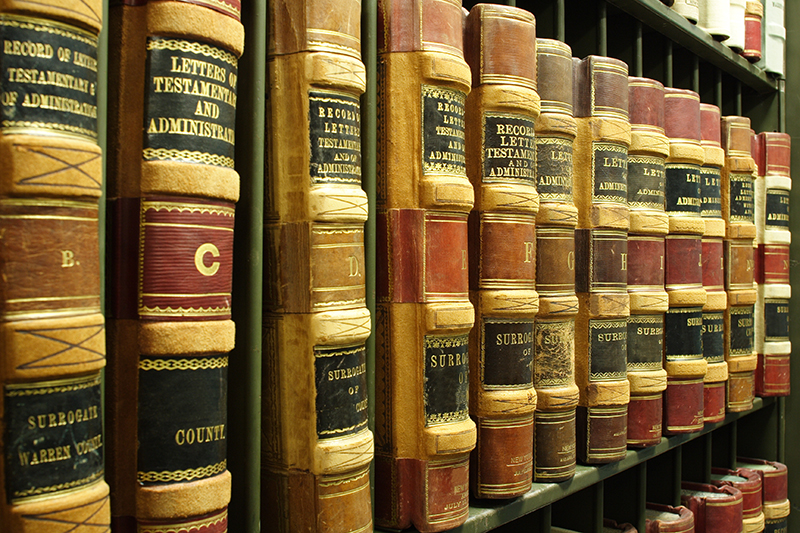

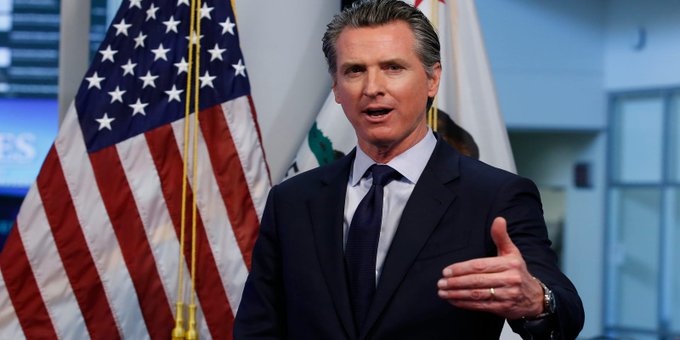
If only there was some limit to the government’s power . . .
Don’t be fooled again by the leftists like Newscum and his Three Stooges:
“All three Democrat authors aimed for their respective bills to remove the use of deepfakes and other digitally altered content in election campaigns, as well as set up legal punishments for violations. They also said that they wrote them to help preserve the democratic process.”
Under the pretense supposedly “to help preserve the democratic process” this is being done to institutionalize CENSORSHIP at the expense of free speech guaranteed by the Constitution.
What’s the punishment for saying something is a deepfake when it is not? This is far more prevalent, which is why they passed the bills; they can deem anything they don’t like a deepfake which would tie it up in litigation. Anytime democrats are trying to “preserve the democratic process” you can bet they’re doing the opposite.
No, no, no, no, Cathie…
It’s “OUR Democracy(TM)” and “OUR Democratic Process(TM)”
Interesting how they all use the exact same terminology, isn’t it???
And Newsom looks more and more like “The Joker” from Batman, doesn’t he?
Not aging well at all… all the LIES are making him uglier over time…
Oh look, yet another unconstitutional California law written by Democrats that will get struck down in the courts and just waste taxpayer money in the process.
Here is the EXQUISITE political ad that oh-so-perfectly-and-accurately captures and reflects who Dem Pres candidate Kamala Harris really is but which would apparently be the target of this OBVIOUSLY UNCONSTITUTIONAL legislation which was predictably championed and signed by none other than California’s Own Longtime Dirty-Trickster-and-Ruiner Gov Gavin Newsom:
https://x.com/libsoftiktok/status/1836252016785375677
Also check this out — Newsom SIGNING these unconstitutional bills —- in front of an audience, of course — like the puffed-up narcissist he is and has been his entire life. What an a-hole.
https://x.com/EndWokeness/status/1836199502669320611
So Assembly Bill 2839, authored by Democrat Assemblywoman Gail Pellerin, would prohibit a person, committee, or other entity from knowingly distributing an advertisement or other election communication, that contains certain materially deceptive content with malice, subject to specified exemptions? All Democrat ads contain deceptive content with malice? Exemptions are probably only made for Democrat ads and election communications?
Democrat Assemblywoman Gail Pellerin who is smiling smugly in the photo wearing her powder blue power suit accentuated with pearls also authored Assembly Bill 969 that bans the hand counts of ballots which Newsom signed into law so that Democrats can continue to cheat and steal elections with rigged voting machines.
Democrat Assemblywoman Gail Pellerin has been a parasite on taxpayers for years having previously served as Santa Cruz County Clerk from 1993 until her resignation in 2020 before being installed into the 28th Assembly District–probably with Democrat voter fraud and rigged voting machines? It’s expensive living in Santa Cruz and no doubt Gail Pellerin’s deep-state Democrat masters have rewarded her handsomely? She probably had little integrity and no ethics to begin with, so it was probably easy for her to sell her soul to her deep-state Democrat masters? She’s also a member of the California Legislative Jewish Caucus but she didn’t issue a peep when pro-Hamas thugs stormed the State Capitol in Sacramento and shut down the Assembly session last January.
LOL – Very funny —- and very funny because it’s TRUE 🙂
For a minute I thought this was Trudeau in Canada only realize it’s Gavin in California.
No kidding.
Democrat Assemblyman Marc Berman, who is baring his large choppers in the photo above, also authored AB 2584, which made changes to the state’s recall law which Newsom quickly signed–probably to avoid being recalled?
His bill raised the number of signatures required on a notice of intention to recall and requires recall petitions to be made available for public inspection during the 10-day time period in which the election office is determining whether the petition can be approved for circulation and allows recall elections to be consolidated with regular elections scheduled within 180 days of the petition qualifying for the ballot.
Democrat Assemblyman Marc Berman is also a member of the California Legislative Jewish Caucus but he didn’t issue a peep when pro-Hamas thugs stormed the State Capitol in Sacramento and shut down the Assembly session last January. He’s no doubt a deep-state globalist and maybe he’s a member of the Khazarian Mafia too?
Is there any doubt now that the Democratic Party is moving closer and closer to an authoritarian party?
Banning free speech and the private ownership of firearms is tantamount to an authoritarian government.
I recall the Democrats calling any talk of Covid not coming from a wet market, Covid vaccines not preventing transmission, and Covid vaccines to not preventing contracting Covid as “misinformation”. Funny how all that “misinformation” turned out to be true.